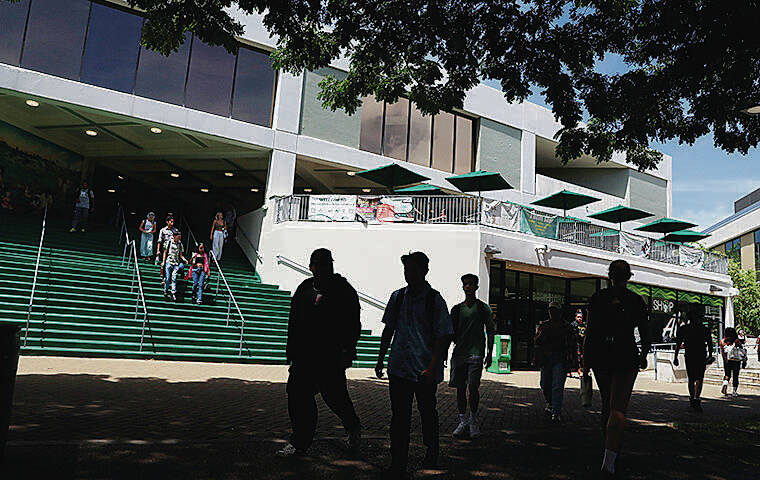By None
In today’s climate of economic anxiety and political polarization, some Hawaii families may be understandably questioning the affordability and value of a college degree. Indeed, it is increasingly common to encounter stories critiquing the rising cost of higher education and even denigrating the value of a college degree itself.
But these narratives, however emotionally satisfying or politically expedient, are fundamentally inaccurate and extremely misleading. To be clear, a college education remains one of the most powerful and reliable investments for long-term financial security, upward mobility and personal agency both in Hawaii and our nation as a whole. And despite popular claims to the contrary, the actual relative cost of a college education for students and families has changed very little over the past two decades.
Let us start with the undisputed facts: Although the published “sticker prices” at colleges and universities have increased sharply across the nation since 2005, almost no student or family actually pays those full amounts. Grants, scholarships, discounts and institutional aid significantly reduce these out-of-pocket costs.
According to the nonprofit College Board, inflation-adjusted net tuition and fees at public four-year institutions across the U.S. peaked in 2012-13 and have since declined. In 2024-25, the average net cost at public universities is around $2,480 in inflation adjusted dollars — a level comparable to the early 2000s. At private nonprofit universities, the trend is similar with net tuition down by over $2,000, adjusted for inflation, from its peak in 2012.
And, here in Hawaii, our homegrown public and private universities provide some of the most affordable and accessible higher education experiences in the country — all infused with local cultural sensibilities and the spirit of aloha.
So why do sticker prices keep going up? Over the past two decades, colleges in Hawaii and across the nation have been asked to do far more for students and families than ever before. The college experience now includes mental health services, career counseling, academic support centers, campus safety enhancements, online learning infrastructure and much more. These are not luxuries but rather increasingly necessary services to support students through their college education while also preparing them for a competitive job market after graduation.
At the same time, state and local funding for higher education in Hawaii (and nearly every other state) has not kept pace with institutional needs; and this has shifted more of the apparent cost burden to students and federal financial aid programs, even as colleges have worked hard to offset that burden through their institutional aid and scholarships. The result of all of this means that sticker prices have increased while actual net costs — the tuition and fees that are actually paid out of pocket — have remained flat or even declined for most local families in real inflation-adjusted dollars.
But what about the value of a college degree, and does it provide strong return on investment?
According to the U.S. Bureau of Labor Statistics, individuals with bachelor’s degrees earn nearly 62% more per week than those with only a high school diploma — demonstrating that even in 2024, higher education remains one of the most powerful and reliable investments for long-term financial security, upward mobility and personal agency in our nation.
In Hawaii’s increasingly high-cost economy, college graduates are not only more employable, they are also more capable of affording housing, supporting their families and contributing meaningfully to our local community. Obtaining a college degree in Hawaii means that graduates are better positioned to remain in Hawaii, value our local culture and raise future generations who have a strong sense of kuleana to our island community.
Lance Askildson, Ph.D., is provost and a professor at Chaminade University of Honolulu.
